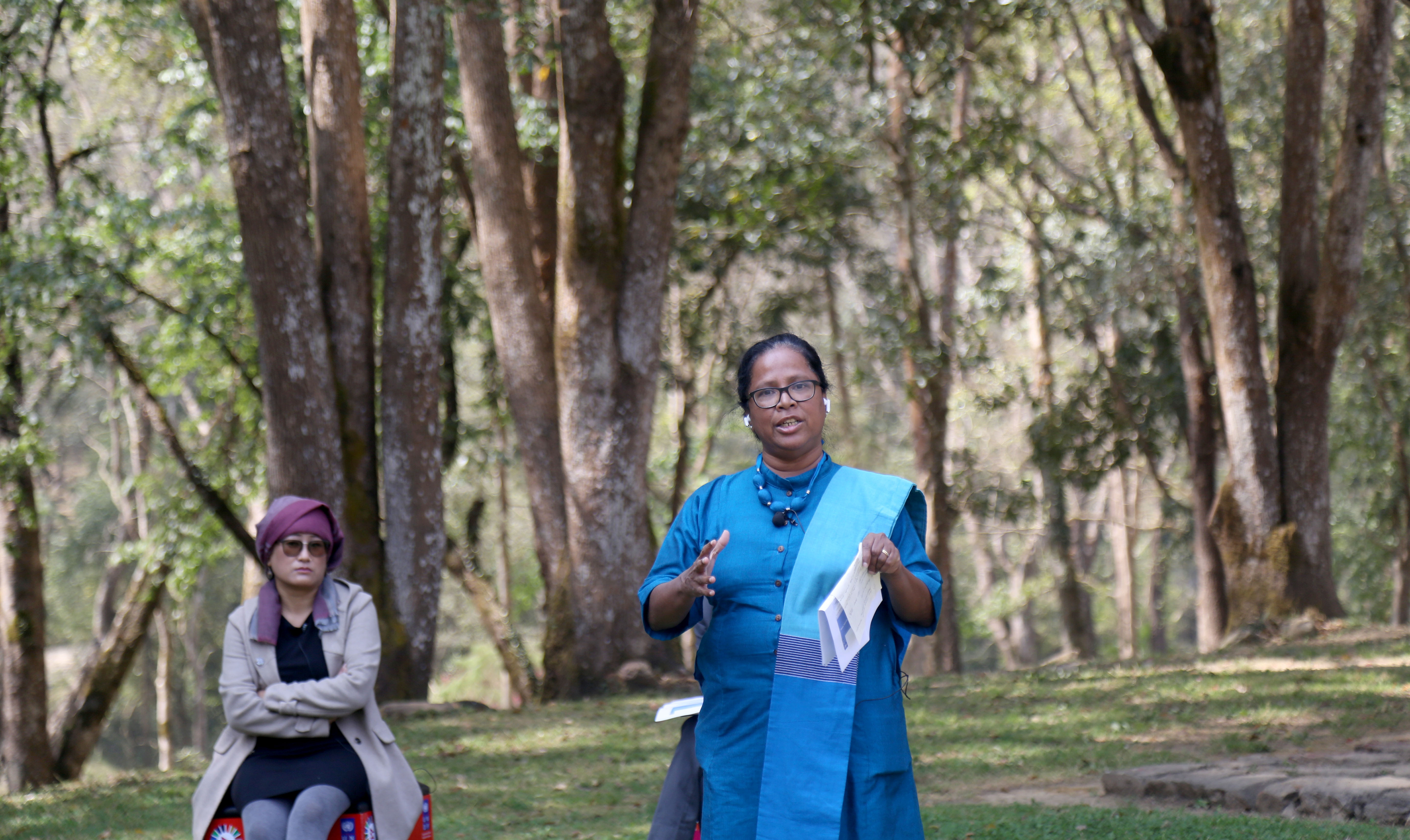Speech: UNDP Resident Representaive Ayshanie Medagangoda Labe
Multi-Country Poem Recitation 2022
March 14, 2022

UNDP RR Ayshanie Medagangoda Labe
14 March 2022, Godawari, Lalitpur
I am very pleased to have you all today and welcome you on behalf of UNDP Nepal.
Today, we are very pleased to announce that we have completed our national and provincial poetry recitation.
This is an initiative which we started three years ago, and we have been promoting youth engagement in gender equality and women empowerment encouraging youth talents. And in this initiative, it is about poetry, because we believe poetry help express emotions freely on the things we cherish which is nature this time. Three years ago, we started poetry competition in all provinces. And during that period, we engaged with public schools, teachers, parents, different school committees to support students. After that, we completed national level competition on 8 March from where we selected twenty-one finalist and three of them will be reciting their poems today from Nepal.
Climate is something which is extremely important for “tomorrow” and that’s why we are speaking about it today. When it comes to UNDP, we have been working to advocate on the issue for long. So, for Nepal, as much as it is for Indonesia, India, and Sri Lanka, it is about forest, flora and fauna. It is about farmland, energy, water, and sun. This is where or with what most of the women spend their time; but they are not fully recognized for what they do to protect the farm, land, forest, wells, rivers or for anything that they do to promote or protect the nature. So, UNDP Nepal want to promote and make sure that everyone recognizes women’s equal contribution to these different natural resources, make sure that women have equal voice, and can take part and make decisions for these natural resources.
So, this is the whole idea about bringing nature and making sure that youth understand issues and engage through the forms of expression to make sure that these messages are conveyed to future generation of Nepal and beyond. Nepal took a commitment last year that by 2030, Nepal will maintain 45% of their land cover under forest. And Nepal also took a commitment that 15% of their energy demand will be covered by clean energy sources in waste management. Nepal also took a commitment that it will phase out some thousand five hundred burning technology facilities industries and municipalities with clean technologies. So, these are some of the engagements that Nepal did take last year for which UNDP Nepal will also be engaging to make sure that their commitments are met by 2030 and, we have net zero emission target in the country by 2050. I am sure you have similar stories in India, Indonesia, and Sri Lanka. By 2030, I might be out with the UN system. By 2050, who knows I might not exist anymore. You as young people, present here and online via zoom, its your future and that is why we are taking this engagement, “Gender equality, today for sustainable tomorrow”. Sustainability tries to bring classically three dimensions to development; social, environment and economic. But these three dimensions will not be successful if we do not consider political dimensions and cultural dimensions. That is why this artistic engagement, expressions, emotions, empathy can strongly influence by speaking, singing, paraphrasing. So that’s how this initiative bring cultural dimension to climate advocacy. And that’s what we would like you the youths to promote. Express freely, convey your empathy, passion and change yourself, your family, community, country and the global community to protect environment and climate. So that’s my message from Nepal to all of us present today. And I hope that this morning we will hear lots of passionate engagement from the four countries. And I hope that we can expand this next year to other topics beyond climate.
Wish you a very good morning.

 Locations
Locations